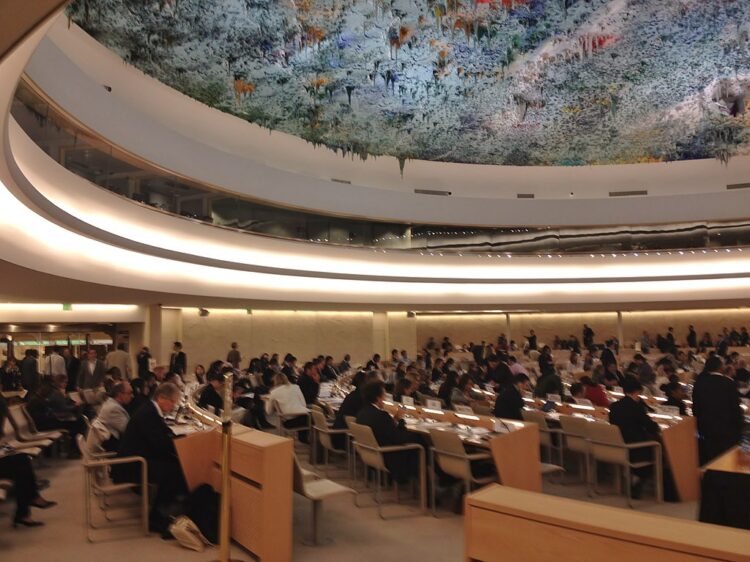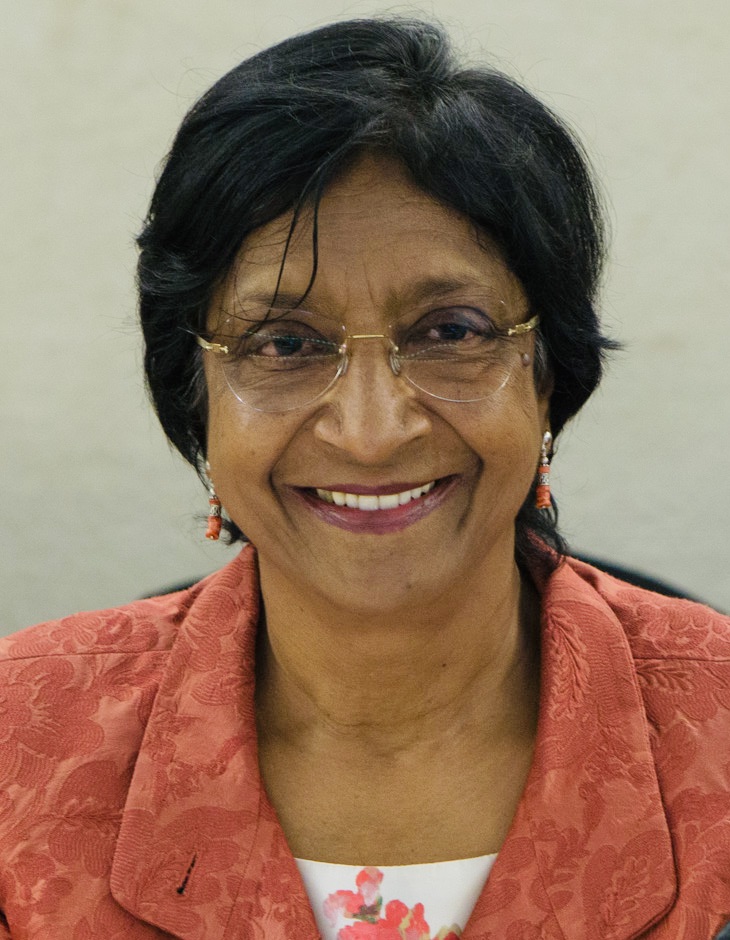Israel has been condemned by the United Nations’ Human Rights Council yet again.
On June 13, the Independent International Commission of Inquiry on the Occupied Palestinian Territory, chaired by Navi Pillay, presented its 18-page report to the Human Rights Council, a body consisting of 47 countries.
The commission, set up after last year’s Gaza war, blamed Israel for the endemic violence that has consumed countless Israeli and Palestinian lives.
Since its establishment in 2006, the Human Rights Council has condemned Israel no less than 99 times, far more than any other nation.
Something is terribly amiss here.
Syria, a police state which flouts human rights on a massive scale, has been condemned 37 times. North Korea, a Stalinist dictatorship which brooks no dissent whatsoever, has been condemned 15 times. Iran, an Islamic theocracy which regularly persecutes and imprisons dissenters, has been condemned 12 times.
China, Cuba and Saudi Arabia, which show no regard whatsoever for Western democratic practices, have never been condemned.
Yet Israel, one of the only real democracies in the Middle East, has been repeatedly lambasted by the Human Rights Council. Given the council’s anti-Israel record, the Israeli government neither cooperated with the commission nor allowed its members into Israel or the West Bank.

The Israeli Foreign Ministry described the commission’s report as “biased and one-sided,” calling it a “waste of money and effort.”
Israel’s reaction was a form of denial. Anyone who has followed events since Israel’s occupation of the West Bank in 1967 will know that the commission’s conclusions, though harsh, were in keeping with reality on the ground and therefore less than surprising.
Israel is understandably disillusioned with the Human Rights Council, but the commission’s report contains huge elements of truth and should not be dismissed so cavalierly.
The commission listed settlement construction and expansion, Jewish settler violence, forced displacements and restrictions on Palestinian movement as contributing factors behind cycles of violence between Israel and the Palestinians. It correctly concluded that this chronic violence will persist as long as Israel occupies the West Bank and the Palestinians are denied statehood.
The commission, however, can be faulted for having turned a blind eye to Palestinian terrorism, as some observers rightly contend.
To its detriment, Israel refuses to acknowledge that its occupation of the West Bank cannot be justified and should have ended long ago. This is a painful yet obvious truth that Israel prefers to kick under the carpet.
It is clear that Israel’s occupation of territory that should be allotted to a future Palestinian state complicates and exacerbates its protracted dispute with the Palestinians.
The Palestinians are morally and politically entitled to statehood in the West Bank and Gaza. There is an international consensus that a two-state solution is the only practical, viable and equitable way forward to defuse Israel’s dispute with the Palestinians. Even the United States, Israel’s chief ally, favors such an outcome.
While it is perfectly true that the Human Rights Council is uncommonly obsessed with Israel and should more often turn its attention to egregious human rights violators like Syria, Iran and Saudi Arabia, it is equally true that Israel’s occupation of the West Bank cannot be ignored, sidelined or wished away.
The occupation deprives Palestinian Arabs of their right to sovereignty and independence, engenders resentment, hatred and violence, stirs instability, and blocks progress toward a peaceful resolution of Israel’s perennial conflict with the Palestinians.
